Sixteenth decisive
MILITARY SUCCESSES: FIRST AND LAST
The situation on the military front favored the government. As far as the year 1915 was a failure, the year 1916 became so successful. It was a success on the eve of the collapse, but they are still impressive.
By the revolutionary 1917 year, the Russian army was thoroughly enlarged, armed and re-equipped. Russia formed the 60 army corps, whereas we started with just 35. The number of our army amounted to 6 million 845 thousand people.
The Russian military industry produced 130 thousand rifles per month (in the 1914 year - only 10 thousand). At its disposal was 12 thousand guns (at the beginning of the war - 7 thousands). The production of machine guns increased 17 times, ammunition - more than doubled. Shells hunger was overcome.
The industry has released 30 974 678 shells for the front (1915 9 567 in 888 year). The problem of the transfer of troops was largely solved by the powerful railway construction.
In 1916, 2252 tracks were built in Russia, 608 was still under construction. At the same time, a railway line was put into operation at 2000 versts connecting the port of Romanovsk (now Murmansk) with the center of the country. The chemical industry developed at an accelerated pace. Only in 1916, the 13 plants for the production of sulfuric acid were built.
In the same period, 25 benzene appeared. In Nizhny Novgorod and Grozny, construction of plants for the production of TNT has started. The aircraft received bombs and machine guns, anti-aircraft artillery emerged in the country.
In the new year, the Russian army began to advance successfully. Erzerum (February) and Trebizond (April) were taken in the Caucasus direction. During the Erzurum battles, the losses of the Turks amounted to 60 thousand people.
Some success was achieved in March during the offensive in the area of Lake Naroch. Our troops recaptured the enemy 10 square. km Not very much, frankly, but the very fact of a successful offensive raised the morale of the troops.
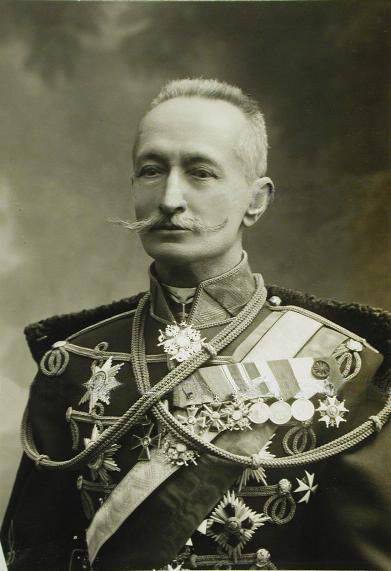
Although, of course, the most successful was the spring-summer offensive of the South-Western Front, known as the Brusilov Breakthrough, after the front commander, General Alexei Brusilov.
Then the Russian troops utterly defeated the enemy who had lost 1,5 million people killed, captured and wounded. Brusilov attacked at once in four directions, one of which was the main one, the rest were secondary. Thus, he did not allow the enemy to maneuver.
The offensive itself was prepared in the most thorough way and came as a complete surprise to the enemy. It is indicative that the majority of high-ranking army men did not agree with Brusilov’s plan.
Thus, the Chief of Staff of the Supreme Commander, General Mikhail Alekseev, believed that the offensive should be carried out by forces of all fronts, with the exception of Brusilovsky.
And other front commanders also spoke against the offensive of the South-Western Front. However, the Supreme Commander himself - Tsar - Brusilov supported, and this resulted in such a deafening success. Although it must be said that success would have been even greater if Brusilov had been stopped on time and had not allowed him to stubbornly besiege Kovel, which was unrealistic to take.
SUPREME FACTOR
The success of 1916 of the year is largely due to the fact that the king himself assumed the supreme command, relieving his uncle, Grand Duke Nikolai Nikolayevich, from this position. At the last discipline in the army remained very low. I had to strengthen it, and with very tough methods. So, Alekseev passed the order of the king:
“His Majesty commands not to stop before any measures for the establishment of strict discipline among the troops and severe punishments in relation to those who have left the ranks of their ranks and in respect of robbers, marauders and arsonists.”
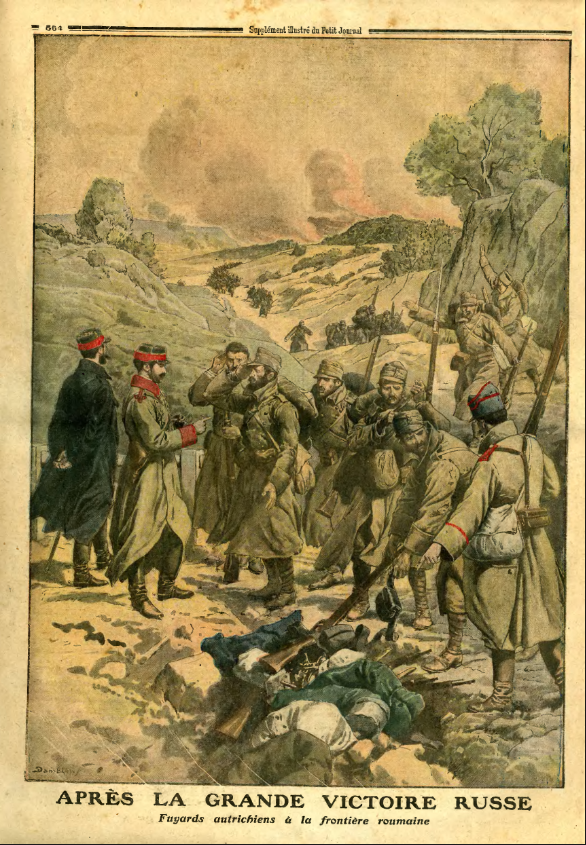
In addition, it was done with the "fogging." Nikolai Nikolayevich turned out to be strict where it was not necessary, and many generals were afraid to report their real failures and the success of the enemy. And the grand duke believed in all this “bullshit” that it had a corrupting effect.
The frequent visits to the new supreme units at the front, which inspired the soldiers and officers, also affected. The king believed that the victory of Russia is almost inevitable, and it will knock out all the cards from the hands of the opposition. There is a big political mistake, because the opposition understood this as well, having played 1917 ahead of the year in February.
Meanwhile, much has been done in terms of internal transformation. The socio-economic system was transformed in the direction of "state socialism".
TRIP TO THE KAZAKH CHEST
Yes, it was about such socialism in the 1916 year that the liberal press shouted, attacking the tsarist government. And these attacks, besides political ones, also had commercial objectives. The relationship between liberals and big capital has proved too close.
And the latter was not even averse to profit from the war. At the same time, the state was actively used, and the head of the Main Artillery Directorate, General Aleksey Manikovsky, very aptly called the whole orgy “a crusade against the official chest”.
First of all, ultrahigh revenues were achieved by sharply inflating prices for military products, for which often the system of state orders was used "competently". Moreover, politicians-merchants, of course, of a liberal nature, participated in such quite official scams.
Thus, the Chairman of the State Duma, the Octobrist Mikhail Rodzyanko, took the contract for the manufacture of a solid batch of birch lodges for rifles. All anything, but the assistant to the Minister of War, General Mikhail Belyaev ordered to throw him one ruble per piece.
Less fortunate was the largest breeder, landowner and banker Mikhail Tereshchenko, who took an active part in opposition maneuvers (in the Provisional Government he will occupy the posts of Minister of Finance and Foreign Affairs). This clever businessman started to build a plant for the manufacture (in a three-year period) 10 thousand machine guns of Maxim's system.
At the same time, he intended to receive for each 2700 machine gun rubles - provided that the treasury provides him with barrels, semi-finished products, etc. Moreover, the production itself was proposed to organize the technical forces of the state-owned plant. At the same time, the production of one such machine gun at the state-owned plant cost only 1370 rubles.
The robbery of such a deal was obvious, it threatened to overpay the state with 15 million rubles. However, to break it turned out to be very difficult, for this it took the efforts of Grand Duke Sergei Mikhailovich, who made a personal report on this subject to the Tsar.
Nevertheless, big business had incredible super-profits from war and work with the treasury. The most common thing was to get on the supply of 300%, and sometimes it came to 1000%.
“The capitalists, under the protection of the so-called commercial secret, hid in every way the profits they received; but even from the official reports that some large enterprises have published in the newspapers, it is clear what huge profits they have gained from the war, ”writes the famous Russian general and historian Yevgeny Martynov. - For example, in the 1916 year, the Sormovsk joint-stock company brought a net profit of 10 550 thousand rubles, with the main capital of 15 million rubles.
Insurance company "Volga", which had a fixed capital of only one million, gave 1 657 161 ruble 55 kopecks of net income for the same year. For 1915 – 1916 a year, the Tula Copper Plant earned a net profit of 15 510 thousand rubles, and the South Russian Dnieper Metallurgical Society - 12 110 thousand rubles, which far exceeded the fixed capital of enterprises ”(“ Tsarist Army in the February Revolution ”//“ Politics and Sociology ” ").
However, the prices were inflated on all goods, about which the press wrote a lot, in particular, the right one. So, the conservative Moscow Vedomosti exclaimed: “It came to the point that it is difficult to point out at least one item of widespread, mass consumption, which would not have been subject to a monstrous tax in favor of obvious and secret industrial and banking organizations ...
There is an orgy of profit everywhere - industrial sharks, ranging from a petty shopkeeper to a brilliant businessman, are no longer satisfied by a hundred or one hundred profits: the rampage of greed pushes on ... a new price increase, and for this purpose hundreds of thousands of pounds of goods are hidden everywhere or “forgotten”. ”
By the way, "friends of freedom" distinguished themselves in this field. So, cadet Andrei Shingaryov controlled the society of wholesale purchases - not by himself, of course, but through trusted representatives.
He ensured that this institution received 100 thousand rubles from public funds for free, and even 50 thousand rubles in the form of a loan. Society sold goods at a higher price. Not satisfied with this, Shingaryov also wanted 1750 thousand rubles - ostensibly as a loan to supply people with food.
SOCIALISM POISON
In the end, the government seriously decided to curb this orgy and limit the influence of big business, which lobbied its interests through the so-called military-industrial committees (MIC). 22 June 1916 was adopted by a decree that prescribed to cut their mediation functions.
From now on, military censorship missed criticism of the military-industrial complex, which had previously been banned. In addition, strict control was established over the budgets of the All-Russian Zemstvo Union, the All-Russian Union of Cities and other proliberal organizations oriented towards big business. The Ministry of War has increased the requirements for the profile products. Special authorized representatives of the Council of Ministers arrived at the enterprises.
They did not forget about the banks by adopting a special resolution “On the expansion of government supervision over commercial credit banks”. The government was preparing to create its own metallurgical plants and expand its transport engineering network. (It is characteristic that after the February Revolution, large-scale businessmen achieved the creation of a special commission that curtailed the former system of state regulation.)
Nationalization began, and its first results were very impressive. The government took custody of the famous Putilov factory, bankrupt due to financial frauds of its owner. And here's the result: prior to nationalization, the plant practically did not release six-inch shells, but after that it gave half of the total number of shells.
“After the mobilization of the defense industry by 1917, military production in Russia grew 2,3 times, fully satisfying the needs of the front in weapons and ammunition, - historian Vasily Galin comments on this and other measures of the government. - The production of some shells increased 40 times. There were so many shells that they were enough for the entire Civil War, and even in 1941 the Red Army used shrapnel in 1917 ”(“ Trends. Intervention and Civil War. ”T. 2).
At the beginning of 1914, the government intended to introduce five-year planning cycles. State planning was supposed to schedule the pace and timing of the construction of railways, ports and large hydropower plants (Dnieper and Volkhov). This is the application for a planned economy.
It is safe to say that the tsarist government was going to go about the same way that the Bolsheviks went. After all, it has even introduced a surplus.
29 November 1916, Minister Alexander Rittih signed a decree “On the development of grain breads and fodder acquired for defense-related needs”.
According to him, the peasants were obliged to sell grain at a price set by the state. Moreover, in return for the grain, receipts or paper stamps were often issued. It was prescribed to create special food battalions on the basis of the rear and reserve military units, which were to withdraw surpluses.
Since the spring of 1916, the rationing system is being introduced, in July it was already operating in eight provinces. (In October, at a special meeting on the food issue, its widespread introduction was even discussed.)
According to the Special Meeting, the card system existed entirely in 8 provinces, 59 individual cities, 39 district cities with counties (or simply in counties). For example, in 1916, cards for salt, sugar, flour, and other foodstuffs were introduced in all cities in the Ufa province.
FAILURE OF LIBERALS
In the 1915 year, when the Russian army was failing, the slogan of mobilizing the general public in its support was put forward. As a result, military-industrial committees emerged, the network of which covered the whole country. The central military industrial complex was headed by the octobrist Alexander Guchkov, the industrialist and progressive Pavel Ryabushinsky became the head of the Moscow military industrial complex.
It turned out that from the very beginning social mobilization took place under the leadership of the liberals. And they made every effort to wrap it in their favor, to extract the maximum political benefit.
The public was not so much helping the army as criticizing the government. An important role was played here and powerful Zemgor, formed as a result of the merger of the Zemsky and the City Unions.
In August 1915, the majority of the Duma members (236 deputies from 442) merged into the Progressive Bloc. It is characteristic that not only liberals (Cadets, Octobrists and others), but also some right-wing ones who created the faction “progressive nationalists” entered it.
At the head of the bloc were three cadets and one progressive - Andrei Shingaryov, Pavel Milyukov, Nikolai Nekrasov, and progressive Ivan Efremov. At the heart of the bloc’s program was the requirement to create a “ministry of public trust”. Thus, the king was faced with a broad opposition front.
And at the same time the government fronde began: the majority of ministers opposed Nicholas II to become the Supreme Commander (instead of his uncle Nikolai Nikolayevich). Thus, a blow was struck from two sides. However, the king did not make concessions to both the fronders and the opposition.
The first he sent in resignation, and the work of the State Duma was temporarily suspended.
Although, having shown his hardness, the king also showed willingness to cooperate. The new prime minister, Boris Stürmer, appointed instead of Ivan Goremykin, was a supporter of a fairly soft line with respect to the Duma.
And Nicholas II himself made a broad gesture, deciding to attend the first (after a temporary break) Duma meeting. But the Duma opposition did not appreciate all this and headed for confrontation. The opposition leaders organized secret meetings (already with the participation of the socialists), where they compiled a list of ministers of the new government, which was to replace the Sturmer cabinet.
NEW ATTACK
The opposition attempted to formalize a wide front. In May 1915, the Central Committee of Community Organizations for Foodstuffs (CCECD) was formed.
And in the meeting on its formation, the Central Military Industrial Committee, Zemsky and the City Unions, corporate, agricultural and workers' organizations took part. The new structure explicitly stated that the government should have transferred to it all functions related to food.
He headed the CECC Cadet Mikhail Fedorov, who almost simultaneously held a secret meeting in his apartment with the participation of Alexander Guchkov, Pavel Milyukov, Mikhail Rodzyanko and other leading opposition figures. It was headed for the implementation of the coup.
It was supposed to remove Nicholas II from power, making his son Alexei monarch under the regency of Grand Duke Mikhail Alexandrovich monarch.
Guchkov was actively preparing a real military coup, hoping to use Guards officers for this purpose (there were no willing people). Milyukov and other leaders of the Progressive Bloc were in solidarity with him, but only they were preparing to replay it.
Guchkov himself planned to carry out a coup against the background of mass street demonstrations. And here he had high hopes for the so-called working group of the Center for Military-Industrial Policy, which consisted of Mensheviks (Kuzma Gvozdev and others).
It is curious that the Bolsheviks in such groups refused to work, considering it a "betrayal of the working class." They themselves continued to operate underground, despite the defeat of 1914, when the arrests affected the Bolshevik faction in the State Duma and members of the Russian Bureau. But in 1915, the bureau was restored. In 1916, it was headed by Vyacheslav Molotov, Alexander Shlyapnikov, and Peter Zalutsky.
This body worked quite carefully. He “did not reveal himself by establishing contacts with the workers and because of this he escaped defeat even when the newly reconstituted Bolshevik Petrograd Committee was arrested on the denunciation of the provocateur Chernomazov just before the start of the revolution.
That is why the members of the Russian Bureau were able to take part in the 27 and 28 demonstrations in February, as well as in the formation of the Petrograd Soviet ”(G.N. Katkov.“ February Revolution ”).
The bureau maintained relations with Vladimir Lenin, who was then in Zurich and was more interested in the global trends and fates of the Western socialist movement.
He actively stigmatized all the “defencists”, “compromisers” and pacifists, gave advice to the Scandinavian socialists, asked about the activities of the Boston radicals, wondered if it was possible to raise the question of separating the Hawaiian islands from the USA in order to shake the situation there.
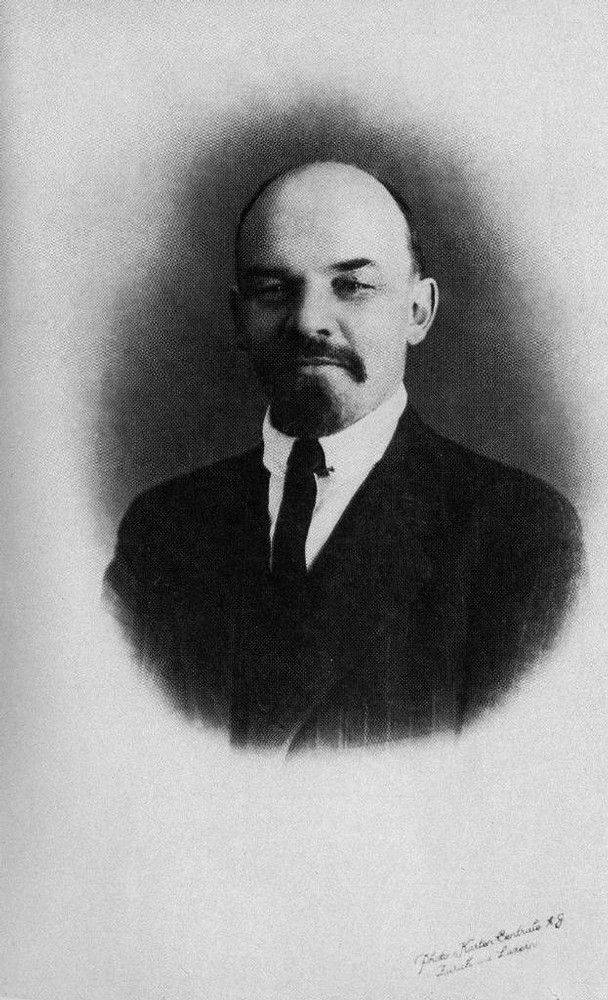
In 1916, he publishes the brochure Imperialism as the Highest Stage of Capitalism. In it, Vladimir Ilyich points to the uneven development of capitalism and puts forward a rather controversial, from the point of view of Marxism, the thesis that the socialist revolution will occur in different countries at different times (on the basis of this, the concept of building socialism in one single country will be created later).
In relation to the Russian revolution, Lenin was somewhat skeptical. At the beginning of 1917, he admits:
“We, the elderly, may not live to see the decisive battles of this impending revolution.”
Let us return, however, to the liberal opposition, which believed (and not without reason) that the autocracy would fall soon. (The opposition’s closed documents indicated the date 1 of April 1917 of the year.)
In the first floor. 1917 of the Year The “public” was active, but the Duma behaved quite quietly, bearing in mind the failure of 1915 of the year. She saved her strength for a powerful shot. Although in May and June there was one very important event.
The parliamentary delegation of Russia visited England and France, and the majority of the delegation was made up of the opposition. Western leaders greeted the Russian parliamentarians very warmly, and as a result, an “inter-parliamentary allied group” was created, to which the Russian side could appeal in the event of a serious conflict with the tsar.
Milyukov, who met with the king of Great Britain, the president of France, the British and French prime ministers, had a particularly busy schedule. Obviously not left without the results of a meeting with representatives of the banks of the Rothschild and Morgans.
The respite ended on November 1, when the regular session of the State Duma began its work. Opposition from the quarry attacked the government of Sturmer. The culmination was the famous performance of Pavel Milyukov, in which he rushed to the government with the phrase: "Stupidity or treason?". This speech then sold out in thousands of copies, and in many cases it was very talented to “finish writing” it.
The Duma attack “unexpectedly” was supported at the very top: the grand dukes spoke out for the prime minister’s resignation. In the end, Sturner was replaced by Alexander Trepov, who sympathized with some of the ideas of the Progressive Bloc. True, he did not last long; at the beginning of 1917, Nikolai Golitsyn was appointed his successor. Meanwhile, the frequent change of cabinet heads, as well as of key ministers, seriously disorganized the situation.
There were other disruptive factors. Thus, in addition to the ministries, the “Special Meetings”, which were actually independent of them, consisted of officials, soldiers, businessmen and others. And on the ground, along with the governors, the administrative functions of the Zemstvo governments were vested with administrative functions.
The king, who stood at the top of the entire management pyramid, spent most of his time at Headquarters (Mogilyov) and on the road related to front affairs.
As we see, the liberals managed to achieve serious disruptions in the work of the government machine, which turned out to be especially fraught in the conditions of war. And this is despite the fact that at the beginning of 1916, the king was ready to cooperate.
But instead he got the real elite war. One of the acts of this war was the murder on the night of December 17 of Grigori Rasputin, who is close to the king and his family. There is every reason to assume that in January-February 1917, the king planned to launch a counteroffensive on the political front.
So, he appointed energetic monarchist Ivan Shcheglovitov as chairman of the State Council. It is possible that a series of emergency measures would have its effect.
However, the political initiative was lost in the decisive year - in 1916.
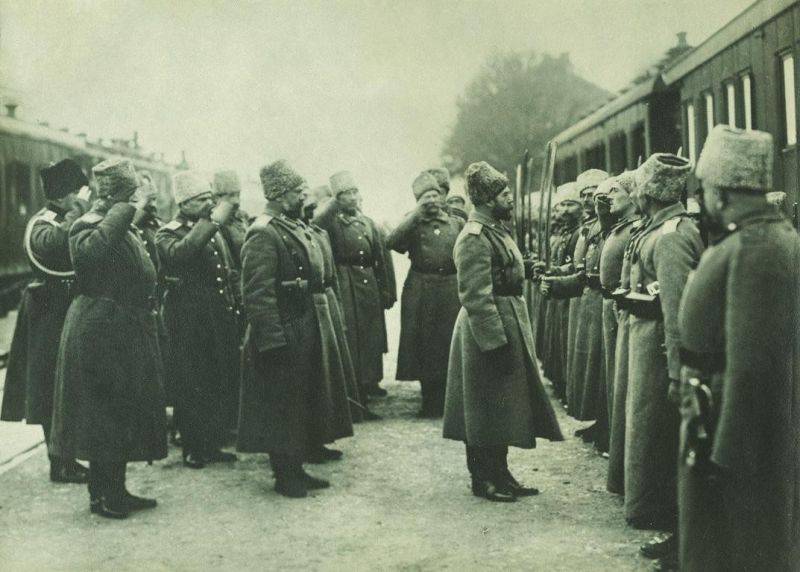
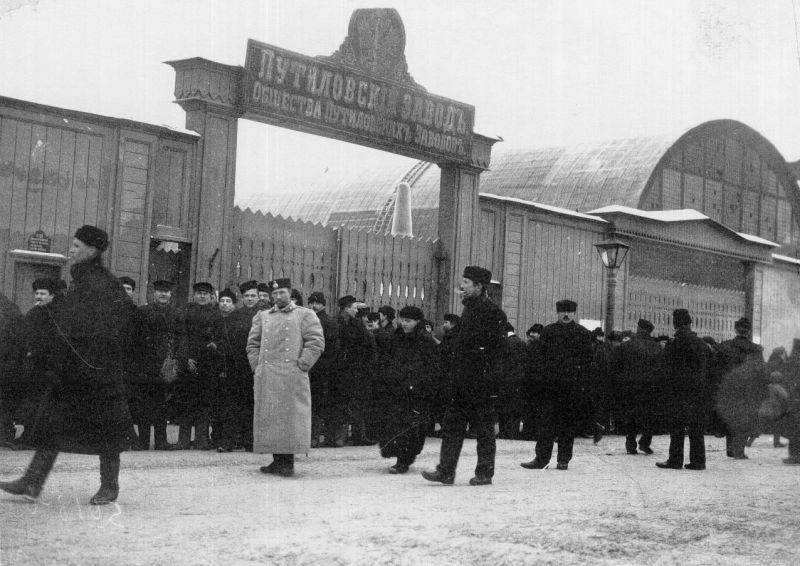
Information